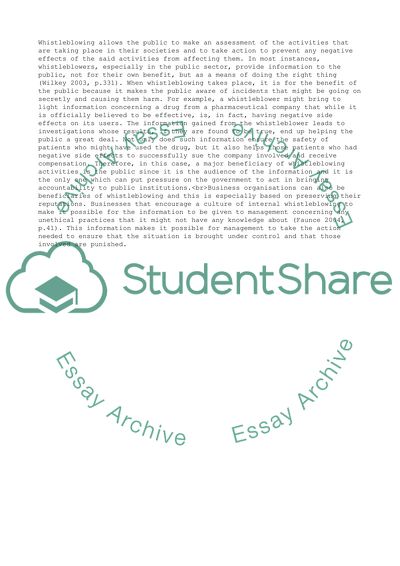Cite this document
(“Who benefits from whistleblowing Essay Example | Topics and Well Written Essays - 2250 words”, n.d.)
Retrieved from https://studentshare.org/business/1672356-who-benefits-from-whistleblowing
Retrieved from https://studentshare.org/business/1672356-who-benefits-from-whistleblowing
(Who Benefits from Whistleblowing Essay Example | Topics and Well Written Essays - 2250 Words)
https://studentshare.org/business/1672356-who-benefits-from-whistleblowing.
https://studentshare.org/business/1672356-who-benefits-from-whistleblowing.
“Who Benefits from Whistleblowing Essay Example | Topics and Well Written Essays - 2250 Words”, n.d. https://studentshare.org/business/1672356-who-benefits-from-whistleblowing.


